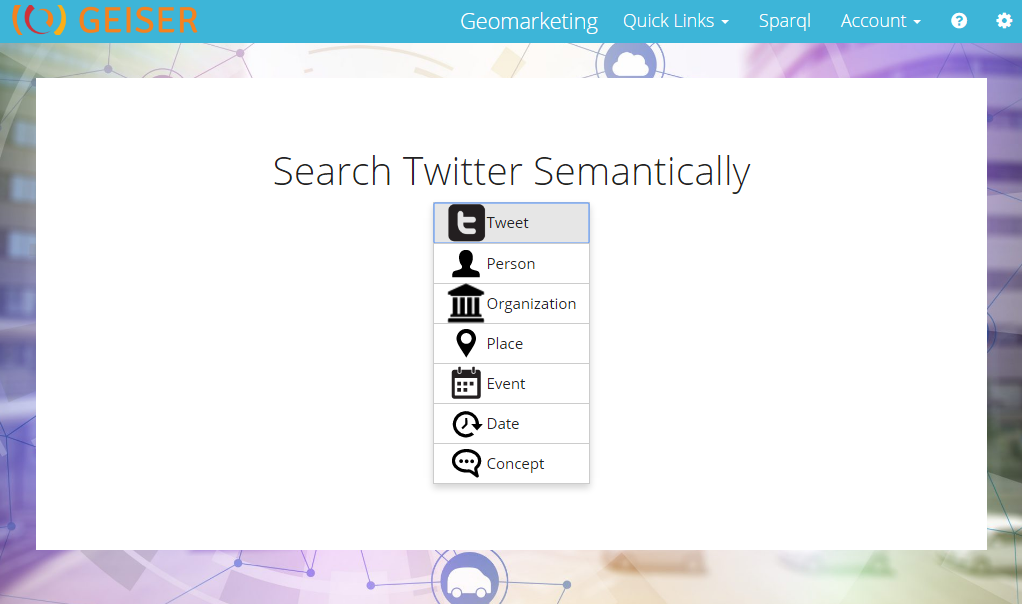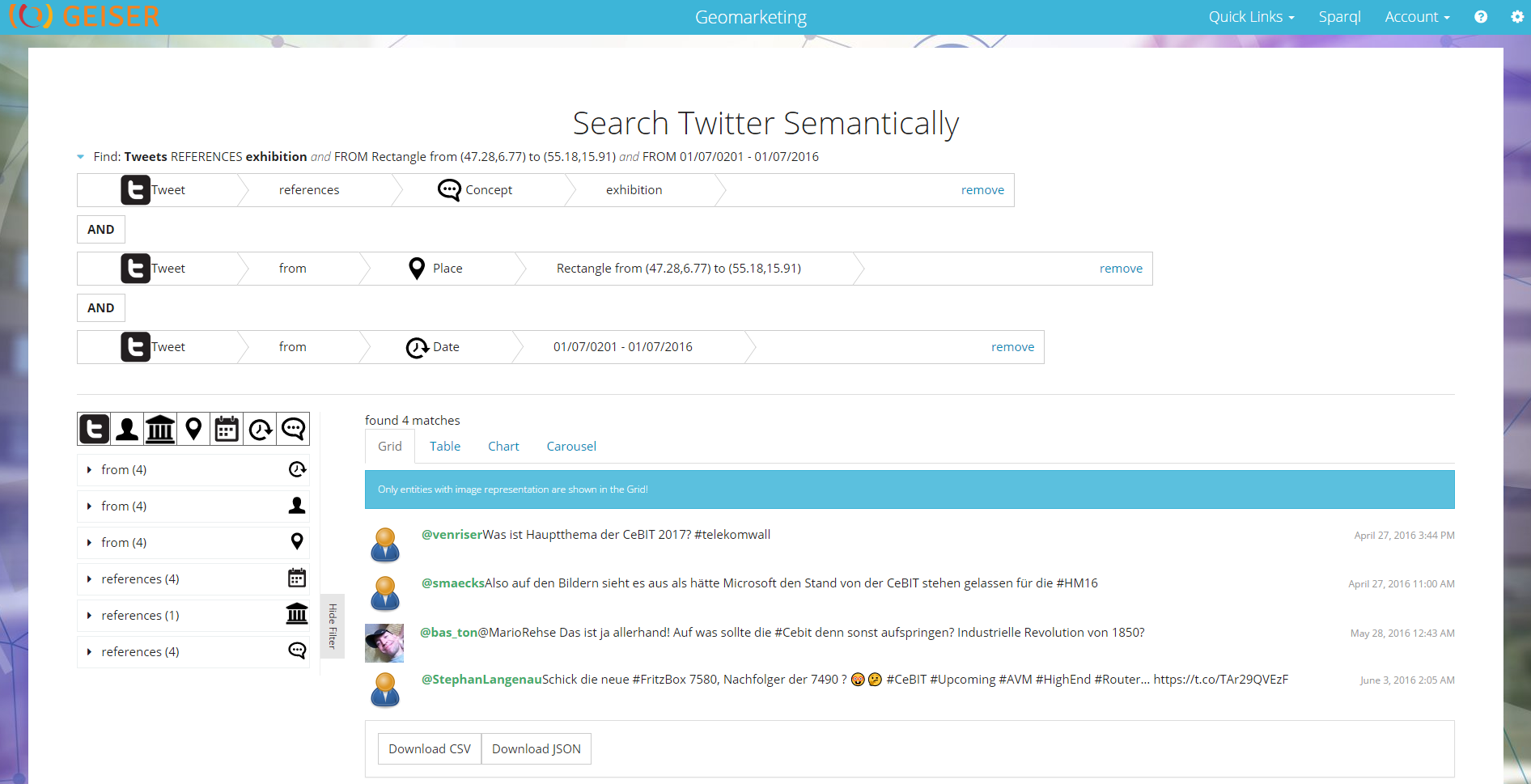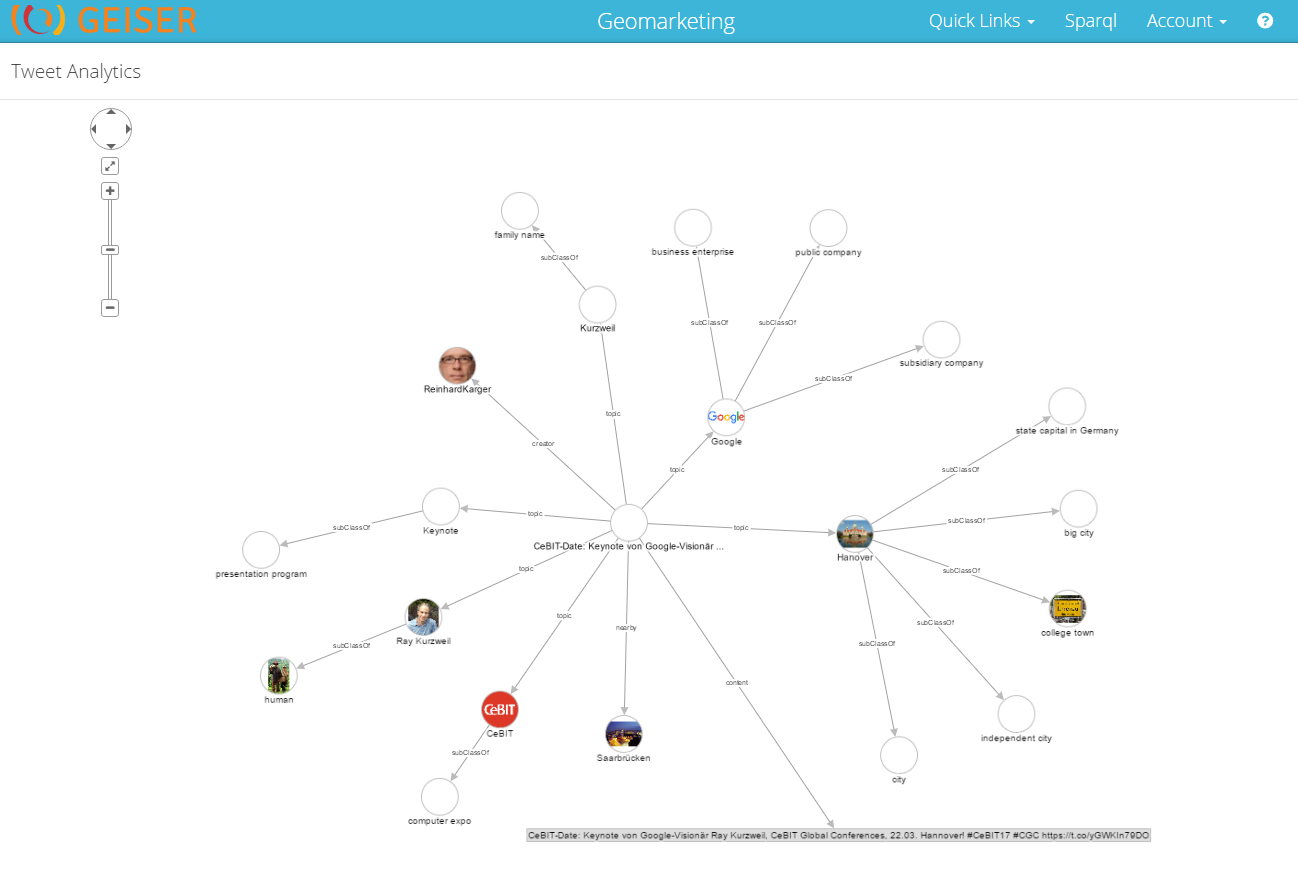RESEARCH PROJECTS
Geomarketing driven by Knowledge Graphs

Goals
Geomarketing has so far delivered benefits mostly for large enterprises, for example in terms of location planning and evaluation, market potential analysis and target group identification. However, the integration, processing and analysis of geospatial data has proven to be very time-consuming and cost-intensive. The main challenge for enterprises consisted in filtering, integrating, correlating and contextualizing the masses of data they were faced with.
Powered by metaphactory, GEISER, a project funded by the German Federal Ministry of Economic Affairs and Energy, uses geospatial data as raw material for intelligent, location-based services and delivers great promise for also supporting small and medium-sized businesses and retailers in linking sensor data with Social Media data, Open Data, forums, websites and internal customer data, so as to improve their advertising and marketing strategies.
Use Case: Contextualizing Twitter Feeds through Integration with Wikidata
By analyzing Twitter data, the GEISER platform can identify short-term regional events, which have the potential to act as a footfall generator for retailers. For example, conference, concert and training participants often tweet about these events. These tweets can be exploited to capture events regionally. In this way, dynamic regional POIs can be determined by means of contextual, spatial and temporal clustering. In particular, the automatic labelling of an event as a conference, concert etc. can have an effect on the short-term offerings and advertising strategies implemented by retailers.
Automated Event Detection
One challenge is that tweets are written in natural language and are not machine-understandable. For example, concepts in tweets are often not directly identifiable: A tweet with the hashtag #data2day refers to a conference, but in order for this to be recognizable for a machine, the connections between tweets frequently occurring in a certain region must be examined and analyzed. In GEISER, tweets are grouped into one cluster. As such, the system can determine in which buildings, in which places etc. these clusters are created, in order to recognize where events are potentially taking place. In the case of the data2day conference, a significant amount of tweets was posted from the IHK Karlsruhe office building.
Linking with Wikidata Entities
By semantically analyzing Twitter data, these data can be linked to other data sources and subsequently queried. In this concrete example, the data is linked to Wikidata Knowledge Graph entities and thereby contextualized. It thus not only becomes clear that the data2day conference is an event taking place in Karlsruhe, but also that software developers are among the target group of this conference and that Karlsruhe is a city in the German state Baden-Württemberg.
Based on this, businesses can formulate precise information needs and conduct accurate queries to identify the events taking place in a given region and during a particular timeframe, such that they can create targeted advertising campaigns for these events. Such queries can, however, also be carried out for past periods of time, for example, to find out which types of events normally take place in spring in a certain region. This allows retailers to prepare for potential events in advance and plan their offerings accordingly.



